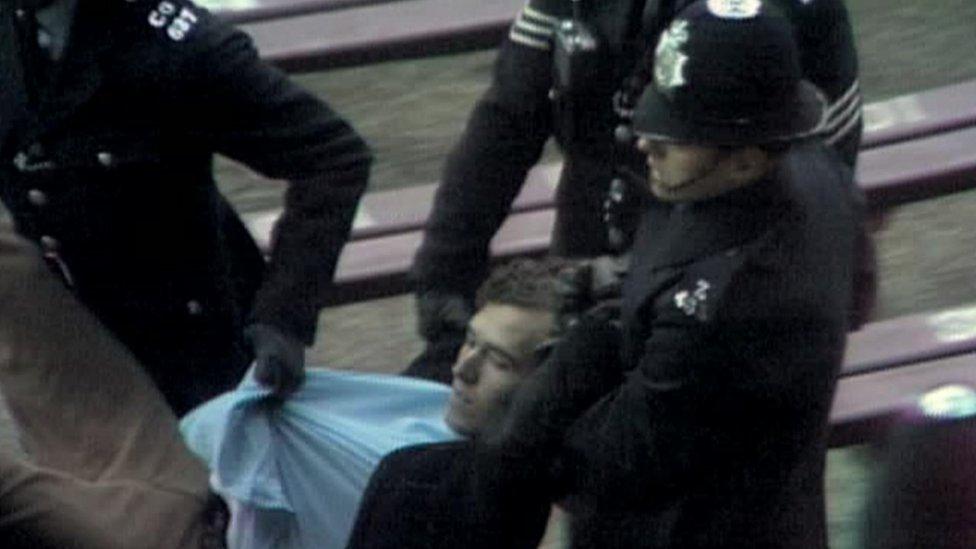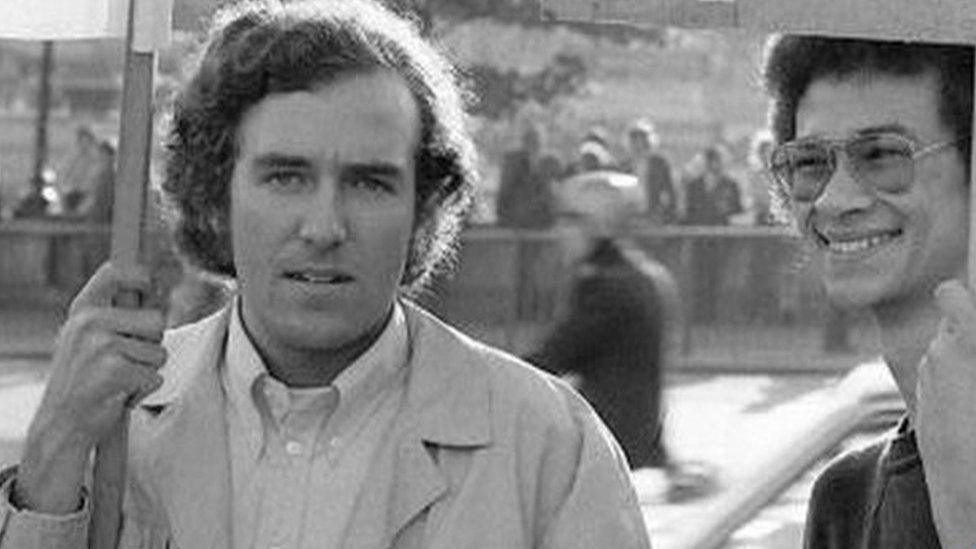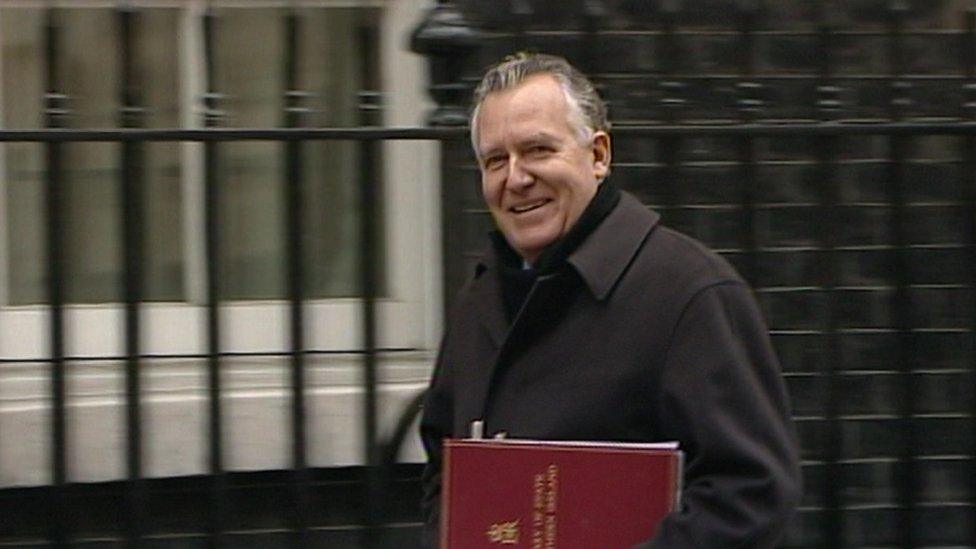Undercover police on wrong side of history, says ex-cabinet minister Lord Hain
- Published

Peter Hain and others invaded sports pitches in non-violent protests against apartheid
A former Labour cabinet minister who was monitored by Scotland Yard for 25 years has accused undercover police of being on the "wrong side of history".
Lord Peter Hain became a leader of the anti-apartheid movement in the 1970s.
He told an inquiry officers should have apprehended South African agents rather than track liberals, vicars and anti-racists in causes he was involved with.
Lord Hain is the most senior politician to appear at the inquiry into historical undercover policing abuses.
Documents published by the inquiry show that intelligence on Lord Hain's anti-racism activities was directly collected by Scotland Yard officers from 1969 until 1994, three years after he became the MP for Neath. A later police document, dated 2003, describes him as a "South African terrorist" at a time when he was in the Cabinet and Leader of the House of Commons.
Peter Hain came to the UK from South Africa with his parents in the 1960s - they were liberal activists whose lives had become impossible because of their opposition to the racist regime.
In 1969, he helped to create the UK's national movement against apartheid, which evolved out of a massive campaign to stop rugby and cricket tours between the UK and South Africa.

Lord Hain was monitored in his youth - and when he became an MP
Those campaigns, which led to pitch invasions and other stunts, have long been recognised as having played a critical role in building a mass movement in the UK against apartheid.
Speaking at the Undercover Policing Inquiry,, external Lord Hain demanded to know why he was targeted by Scotland Yard's Special Demonstration Squad, an undercover unit that infiltrated the anti-apartheid movement and the Young Liberals, of which he also became a leader.
"[Undercover] resources [directed at us in the 70s] should have been devoted to catching terrorists, catching drug traffickers and serious criminals, not devoted to keeping an eye on and harassing anti-apartheid protesters," he said.
"The police have to decide when facing anti-apartheid protesters whose side they are on. And in many cases of undercover officers they made the wrong choice. The police, in targeting us, were putting themselves on the wrong side of history."
Lord Hain said his parents' modest lounge in their south-west London flat was the first base for the campaigns to stop the sporting tours - and Scotland Yard documents reveal that an undercover officer called Mike Ferguson managed to infiltrate those meetings.
Ferguson sent reports to Scotland Yard, later copied to MI5, about the movement's plans for non-violent direct action protests. These including warnings that the campaigners would chain themselves to rugby goal posts, a protest that is not a crime.
At the same time, South Africa's secret service agents in the UK were plotting to kill leading figures in the anti-apartheid scene.

When in government Lord Hain oversaw undercover operations in Northern Ireland
Lord Hain was personally targeted by a letter bomb that failed to detonate. The 1972 device was the same as others believed to have been sent by South African agents to anti-apartheid activists around the world.
Lord Hain said that during his ministerial career he had signed off MI5 operations against terrorism suspects in Northern Ireland - and had been kept safe by armed police officers.
He was Northern Ireland Secretary between 2005 and 2007, and twice served as the Secretary of State for Wales.
But reflecting on the 1970s, Lord Hain said: "Why were they [the police] not targeting the agents of apartheid bombing and killing [and acting illegally in London]? These officers should have been helping to bring down the apartheid system... instead of spying on us.
"What I object to is that when it comes to progressive radical movements... we're all presented as somehow subversive or semi-criminal or disrupting England's green and pleasant land. This is completely unacceptable and reprehensible."
Lord Hain also referred to the police investigation into the campaign for justice for Stephen Lawrence, the black teenager murdered in a racist attack in south London in 1993.
A later stage of the inquiry will investigate how and why Scotland Yard gathered information on the campaign.
In his evidence to the inquiry, Lord Hain said: "Undercover policing then gets to the point where, instead of catching the racists responsible for Stephen Lawrence's murder, they infiltrate the Lawrence campaign."
Next week, one of the surviving officers who monitored the anti-apartheid movement will tell the inquiry what he was asked to do.
- Published25 March 2015
